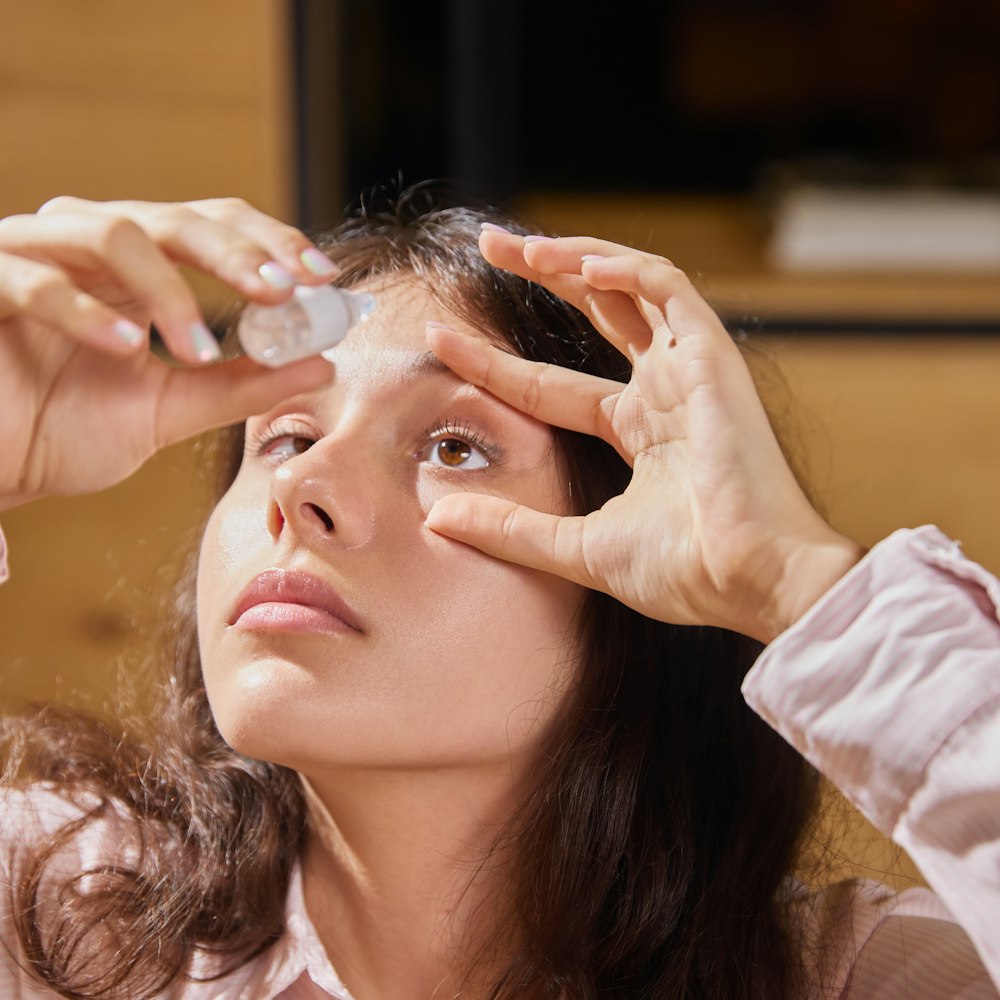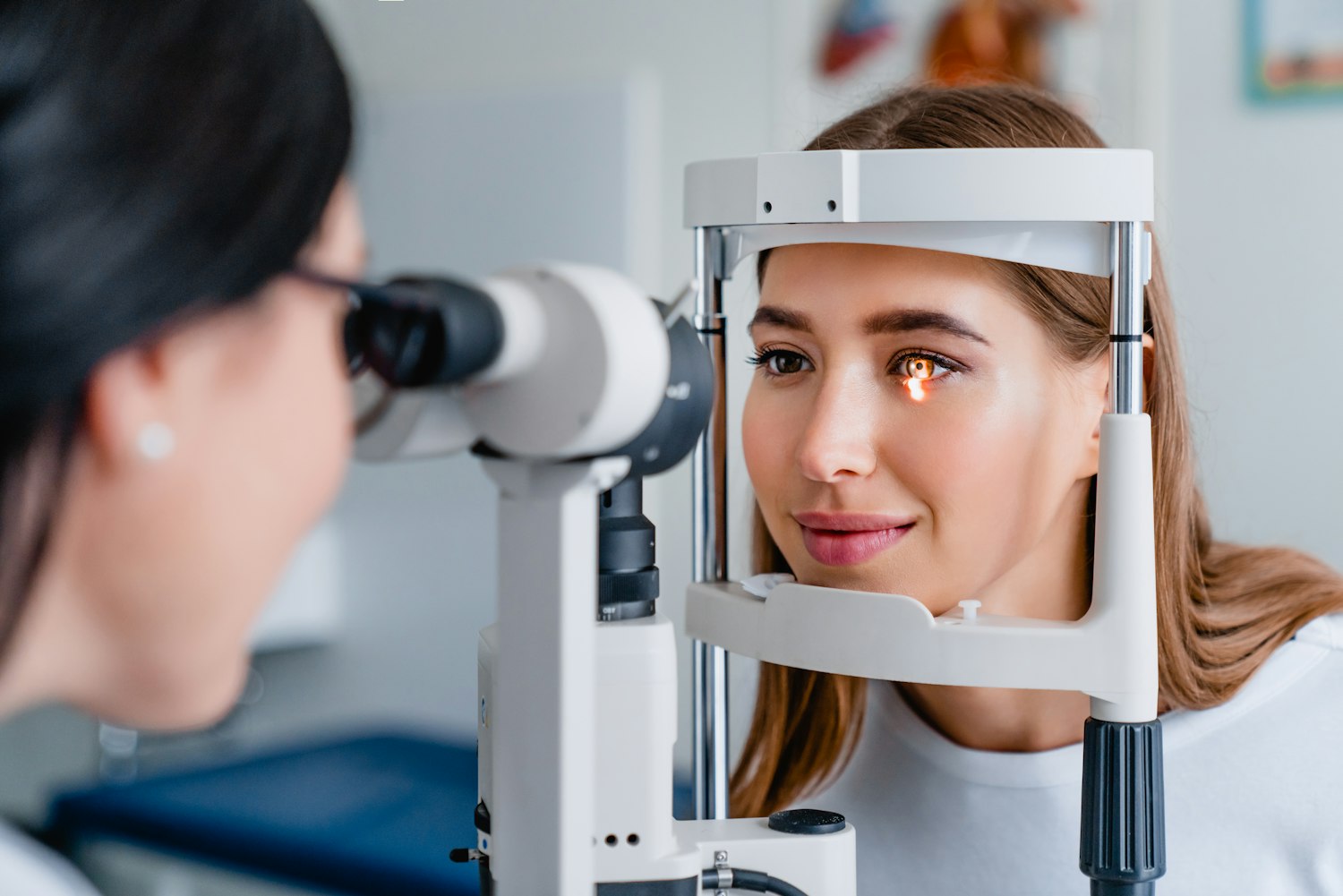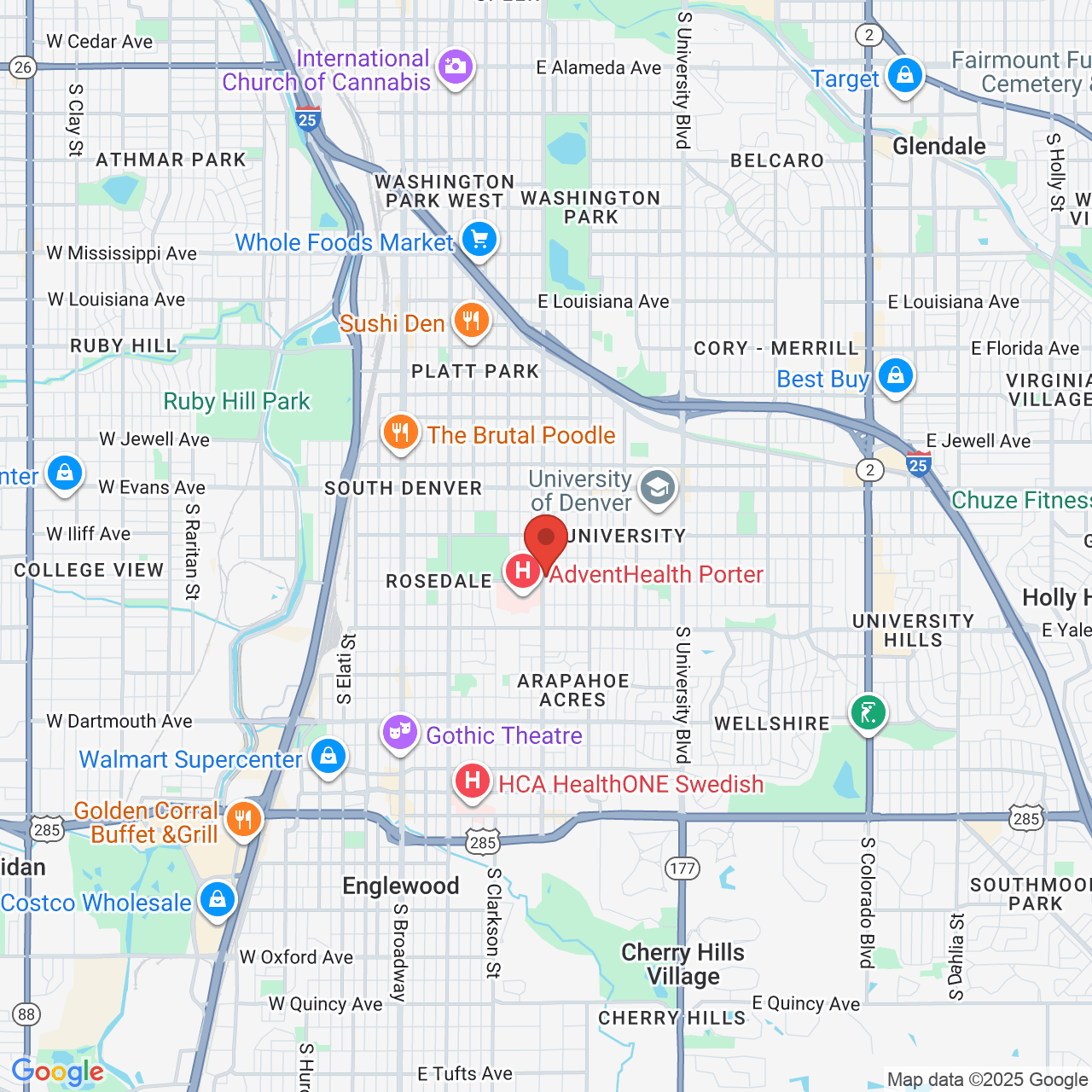Keratoconus Denver
Onsite Surgical Care
& Other Treatments for Keratoconus
- Trusted by athletes, physicians, and TV personalities
- Cutting-edge diagnostics and education technology
- Same-day appointments available on Zocdoc
- Warm, patient-focused atmosphere across from Porter Hospital
Treatment Options Depend on the Stage of Keratoconus
Keratoconus isn’t a one-size-fits-all condition. It develops in stages, and each stage requires a different approach to preserve vision. By recognizing where you are in the process, our ophthalmologist in Denver, CO, can recommend the right treatment — from simple solutions in the early stage to advanced surgical care if needed. Understanding these stages is the key to preventing further damage and protecting your long-term eyesight.
Early Stage
Mild keratoconus often responds well to noninvasive care such as artificial tears, eyeglasses, or soft contact lenses. These options can manage discomfort and sharpen vision while the condition is still in its earliest phase.
Intermediate Stage
When glasses and contacts can no longer keep up with changes in your cornea, corneal collagen cross-linking may be the next step. This FDA-approved procedure strengthens the cornea and helps slow or stop progression.
Advanced Stage
If the cornea becomes too steep or scarred for lenses, surgery may be the most effective solution. Corneal rings or transplants performed at our onsite surgical center can restore clearer vision and safeguard your quality of life.
Early Treatment Can Help Call Our Denver Practice Today

Keratoconus is a progressive eye condition. The sooner it is treated, the better. Early treatment can prevent the need for more invasive procedures later on. If you have any changes in your vision or any symptoms of keratoconus, a visit to our Denver ophthalmology office can put your mind at ease and possibly save your eyesight. Don't wait; request an appointment today.
“The staff was very friendly and professional, and the doctor was amazing! It was a great experience!!”
— Shemi D., 5-star review
Corneal Cross-Linking Strengthen Your Cornea With a Minimally Invasive Procedure
Corneal cross-linking can slow or even stop the progression of keratoconus. This outpatient procedure is FDA-approved and can help preserve your vision and prevent the need for a corneal transplant.
Who Should Consider Corneal Cross-Linking?
Optimal candidates for corneal cross-linking include patients who:
- Have not responded to other treatments
- Have symptoms that have progressively worsened
- Have mild-moderate keratoconus
- Are between the ages of 14-40
- Do not have corneal scarring
It is important to remember that corneal cross-linking does not reverse the changes to your cornea that have already occurred. The procedure does help to keep symptoms from worsening and slows the progression of the disease.
A Closer Look At the Corneal Cross-Linking Process

Apply the Solution
Your doctor applies a vitamin B2 (riboflavin) solution to the cornea. This prepares the tissue for treatment and ensures the UV light will be effective.
Ultraviolet Light Activation
A specialized UV light shines on the cornea for about 30 minutes. This activates the riboflavin solution and begins the strengthening process.
Collagen Bond Reformation
New collagen bonds form within the cornea, improving its stability and helping prevent further bulging.
Numbing drops keep you comfortable during the procedure, and most patients report only mild irritation or light sensitivity afterward. Sunglasses and prescribed medications can ease recovery. If you notice severe pain or sudden vision changes, our Denver doctors are available to help right away.
“The best eye care.” More Praise For Our Denver, CO, Office
Wonderful staff, everyone was so friendly and super helpful! I will be referring friends and family to come to this office!!
View on GoogleI have been going to Hines Sight for years, and have always received the best eye care. The staff and doctors are very professional and competent. If you need your eyes cared for, this is the place to go!
View on GoogleKeratoconus and Corneal Scarring
Some cases of keratoconus can cause corneal scarring. A corneal scar may require corneal transplant surgery. Corneal scarring from keratoconus can happen in two ways:

Corneal Swelling
In some cases of keratoconus, your cornea could rapidly swell and cause a sudden reduction in your vision. This occurs when the inner corneal lining breaks down and allows fluid to enter your cornea. The swelling typically goes down on its own, but the rapid swelling can leave a corneal scar that can affect your vision.

Advanced Keratoconus
Advanced stages of keratoconus can cause corneal scarring. If your cornea progressively gets more cone-shaped, the scarring typically occurs where the cone bulges most. This scar on your cornea will take a toll on your vision.
Candidates for Corneal Transplant
According to the National Keratoconus Foundation (NKCF), only 15-20% of patients suffering from keratoconus will require a corneal transplant. Our doctors may recommend a corneal transplant to preserve your vision if:
- Other treatments for keratoconus fail
- The disease has progressed to the advanced stages
- Your cornea is exceptionally thin
- Your visual changes have progressed to the point that glasses or contacts no longer help
Corneal Transplant Surgery for Advanced Keratoconus
When glasses, contact lenses, and other noninvasive solutions are no longer enough to correct your vision, surgery may be recommended. If surgery is the right treatment for you, our Colorado eye doctors can recommend you to a trusted specialist to perform corneal transplant surgery.
"Corneal transplant is an outpatient surgery that can be performed in under one hour."
“Helpful, intelligent, and skilled” What Patients Are Saying About Our Team
A very organized office. Staff was helpful, intelligent and skilled. Dr. Coco was thorough, kind and provided outstanding care. A good experience and a nice clean office.
View on GoogleThey were very patient and knowledable which helped put my mind at ease about the procedure and I'm looking forward to scheduling an appointment here in the future!
View on Google
Your Eyesight Can Be
Safely Restored
At Our On-Site Surgical Facility

Our office includes an onsite surgical center, making it possible to perform every type of keratoconus treatment in one location.
Our Denver ophthalmology office provides a home-like, welcoming atmosphere where patients have access to tea, coffee, and refreshments. Located across the street from Porter Adventist Hospital and near Denver University, Hines Sight is proud to be in a hub of cutting-edge medical treatment and research.
Contact us if you are experiencing symptoms of keratoconus or any other changes in your vision.
Making Keratoconus Care Affordable and Accessible
Insurance Coverage
Hines Sight accepts most major medical and vision insurance plans. Our compassionate Denver team works directly with your provider to make sure you are getting the most from your benefits. We’ll review your plan, explain what is covered, and help minimize out-of-pocket expenses wherever possible.
Financing Options
For patients without insurance—or for procedures not fully covered — we offer flexible financing through CareCredit®. This trusted third-party lender allows qualified patients to spread costs over manageable monthly payments, with terms ranging from six to 60 months and low-interest options available. Financing can make advanced care more accessible, giving you the freedom to move forward with treatment when you need it most.
Understanding How Keratoconus Affects the Cornea

A normal, healthy cornea is dome-shaped and round. A cornea affected with keratoconus will bulge and is shaped more like a cone, which can cause symptoms such as blurring and light sensitivity.
Recognizing the Symptoms of Keratoconus Early
The symptoms of keratoconus can change as you age and the condition progresses. Typical symptoms include:
Blurred Vision
Distorted Vision
Light Sensitivity
Difficult Driving at Night
Frequent Changes in Vision
Clouded Vision
Sudden Worsening Vision
Fleischer Ring (a pigmented ring around the cornea)
Protecting Children’s Vision From Keratoconus

Symptoms of keratoconus often begin to appear when a child hits puberty through their teenage years. It is important to address these symptoms in pediatric patients as soon as possible to preserve your child's vision. Prompt treatment can slow this progression to maintain their eyesight.
Protecting the delicate cornea is critical, and your child's doctor may suggest allergy medicine or drops to prevent rubbing of the eyes. If your child experiences symptoms of keratoconus or a sudden change of vision, contact our Denver practice.
“10/10” What Denver Patients Appreciate About Us
this place was awesome…Staff was very kind and the doctor was fantastic. 10/10 would recommend
View on GoogleI had a great experience with Dr. Coco and the entire staff at Hines Sight…The office staff was friendly and communicated clearly. Would highly recommend!
View on GoogleExperiencing Symptoms? Get Help From Our Denver Specialists

Dr. Justin Coco and his team can efficiently diagnose keratoconus and provide effective treatment. Keratoconus can make living your daily life challenging and can even put your safety at risk. If you are having difficulty seeing, or difficulty driving at night, don't hesitate to call our office. Dr. Coco can get you the keratoconus treatment or other vision solution you need so you can go back to seeing clearly once again.
Stop living with blurred vision. Call our Denver, CO, practice to request your appointment today.
How Keratoconus Is Diagnosed
During your eye exam, your doctor will review your eye health and family history. If someone in your family has keratoconus, you should be tested for the condition once a year.
"If diagnosed with keratoconus, your symptoms can be easily managed with prescription glasses and contact lenses."
Corneal Topography
Slit-Lamp Examination
Corneal Pachymetry
Eye Refraction
State-of-the-Art Technology for an Accurate Diagnosis
Your vision problems could be caused by numerous factors other than keratoconus. That is why it is crucial to visit an experienced eye doctor to ensure you are being treated for the right cause of your vision issues. We use the latest in technology to provide the best results and the most accurate diagnoses. We use advanced optical coherence tomography (OCT) tests to identify retinal diseases, ultramodern lasers for those seeking LASIK, and much more. We pride ourselves on being one of the most technologically advanced eye care offices in Colorado.
Do not hesitate to discover the cause of your vision impairment. Call our Denver, CO, office today to schedule your appointment.

Can LASIK Help My Vision If I Have Keratoconus?
/
While LASIK is a popular choice for people dealing with common vision problems like nearsightedness, farsightedness, or astigmatism, it cannot prevent or treat keratoconus. LASIK can actually be dangerous if you have keratoconus because it can further damage your cornea and worsen your vision.
“Nothing short of excellent.” Denver Patients Share Their Stories
My recent appointment with Dr. Coco was nothing short of excellent. The moment I stepped into his clinic, I was greeted by a friendly staff who ensured a smooth and timely check-in process. Dr. Coco himself was both professional and personable, providing a comprehensive eye exam with the latest technology.
View on GoogleThe staff was friendly and the service was prompt. Dr. Coco performed a thorough and efficient eye exam, taking the time to explain my vision changes and answering all my questions. The atmosphere was professional yet comfortable, and I felt completely at ease.
View on Google


